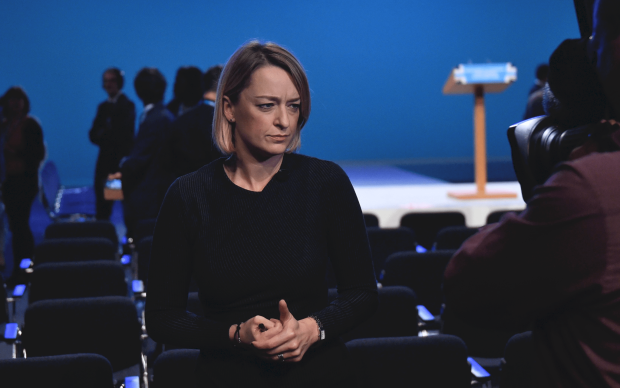The eyes of the world have been on Britain’s vaccination programme in recent months, as the UK government embarked on a dramatic push to get our population inoculated by prioritising first doses. During this time, the naysayers have been plentiful – with some UK commentators and plenty of politicians abroad keen to cast doubt over the strategy.
What everyone agreed was that time would tell. But now it appears we have promising results, with a new pre-print of a study published by Public Health England today. The study shows that just one dose of both the AstraZeneca and Pfizer vaccines has significantly reduced Covid-19 infections among those aged 70 and over. And, the study suggests that one dose of either vaccine is more than 80 per cent effective at preventing hospitalisations among the over-80s, three to four weeks after the shot.
This is, of course, very welcome news for the many vulnerable people who have already received their first shot in Britain. But it may leave some leading EU figures with red faces this afternoon. Ever since Britain approved the Oxford vaccine and began its one-dose strategy, flying ahead of other EU countries, there have been howls of anguish from EU leaders who have sought to undermine Britain’s programme and cast doubt on the efficacy of the Oxford shot.
With the news that both the Pfizer and Oxford/ AstraZeneca vaccine appear to be effective after one dose, Mr S thought it worthwhile to revisit some of those comments now…
Emmanuel Macron
At the end of January, French President Emmanuel Macron made some remarkable statements about the efficacy of the AstraZeneca vaccine. Speaking to reporters, Macron even suggested that the shot was ‘quasi-ineffective’ on the elderly:
‘The real problem on AstraZeneca is that it doesn’t work the way we were expecting it to. We’re waiting for the EMA [European Medicines Agency] results, but today everything points to thinking it is quasi-ineffective on people older than 65, some say those 60 years or older.’
French ministers are said to believe Macron could have a second career as an epidemiologist. Mr S would recommend that he doesn’t give up the day job…
Clement Beaune
Macron was not the only critic in the French government. At the beginning of February, the French Europe minister, Clement Beaune, suggested that Britain was taking ‘a lot of risks’ by having a 12-week gap between difference doses. The minister then suggested that French citizens would not stand for this kind of gamble, even if the method had been approved by scientists.
Ursula von der Leyen
The European Commission President, Ursula von der Leyen, was not much more helpful. Despite essentially going to war with AstraZeneca to gain more of its vaccine doses, von der Leyen suggested at the beginning of February that Britain had compromised on ‘safety and efficacy’ by approving the vaccine so early. The fact that the European Medicines Agency (EMA) reached exactly the same conclusions as Britain’s healthcare regulator appeared to have passed the bureaucrat by entirely…
Handelsblatt
You could say that the true sniping against the Oxford/AstraZeneca vaccine was kicked off by the German financial newspaper, Handelsblatt, who claimed in a story in January that the shot was only 8 per cent effective on the over-65s. The story did not appear to have aged well.
The Robert Koch Institute
Handelsblatt’s somewhat dubious reporting appeared to influence German scientists as well. In January, the European Medicines Agency approved the Oxford vaccine for use on all ages. The German government’s vaccine committee, however, pointedly refused to allow the vaccine to be given to the over-65s, citing insufficient data.
In the end, almost half of the EU’s members have restricted the use of the AstraZeneca vaccine and doses are being wasted across the continent as Europeans refuse to receive the Oxford jab. Now that we have data showing the efficacy of the shot, including on the elderly, that decision seems certain to have been proven unwise.
Got something to add? Join the discussion and comment below.
Get 10 issues for just $10
Subscribe to The Spectator Australia today for the next 10 magazine issues, plus full online access, for just $10.





















Comments
Don't miss out
Join the conversation with other Spectator Australia readers. Subscribe to leave a comment.
SUBSCRIBEAlready a subscriber? Log in